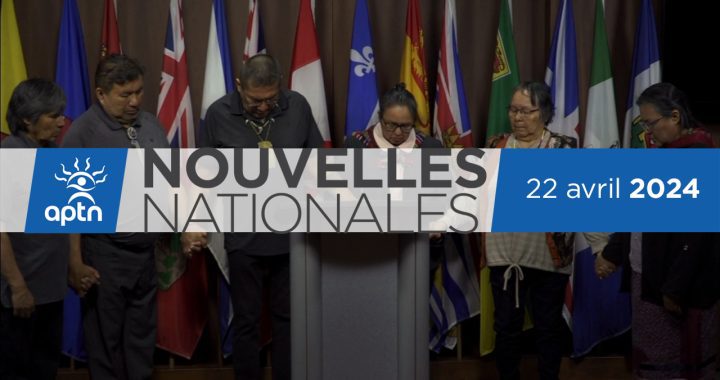Canadian opposition party leaders for once are in total agreement that the Liberal government has not lived up to its obligations to the Truth and Reconciliation Commission.
The objections came during a “take note debate” Tuesday evening in the House of Commons.
The debate offers parties to voice concerns and positions but doesn’t bind the government to any policy changes.
The sitting was called by NDP leader Jagmeet Singh in response to the discovery of the remains of 215 children in a mass grave near a residential school in Kamloops.
“We want real action. That is what justice demands,” Singh exclaimed in the house. “I want us to move on from symbolic gestures and nice words that the liberal government has done again and again. We need concrete action.”
Of the most common grievance from opposition parties was the federal government’s lack of progress in fulfilling the Truth and Reconciliation Commission’s (TRC) Calls to Action numbers 71-76 which calls on the feds to honour missing residential school children.
Among other things, these mandates require the turning over of all relevant coroner’s records to the TRC, the development of a national death registry, including maintaining an online registry, of all students who died in residence and the establishment of appropriate commemorative ceremonies and markers.
NDP MP Leah Gazan also commented on how the liberals have been slow to act on the relevant calls to action and questioned their priorities.
“In the midst of this debate, this government is fighting St. Anne’s residential school survivors in court,” Gazan pointed out. “A violent act of having people who underwent the most genocidal act, still having to prove that violence even today, this very day, where the remains of 215 children were found in a mass grave.”
Even those parties that don’t always prioritize Indigenous issues were in agreement.
The leader of the Bloc Québécois, Yves-François Blanchet, called First Nations Canada’s “sister nation” and stressed the country needs to follow their lead on next steps.
Official Opposition leader Erin O’Toole gave a lengthy address calling the residential school era a dark and painful part of the country’s history.
He said Canada owes it to residential school survivors and the families of the kids that never came home to immediately redouble efforts towards reconciliation and healing.
During the debate Liberal MP Jamie Batiste asked O’Toole if he would now support the adoption of the United Nations Declaration on the Rights of Indigenous People into Canadian law.
O’Toole didn’t answer his question but rather stressed the need to adhere to the TRC calls to action and suggested a firm deadline.
“Work with us to move swiftly on calls to action 71-76 by Canada Day. Let’s have a plan to deliver the true potential of this great country for all Canadians,” he said.
Indigenous services minster Marc Miller called the gruesome discovery a crime scene and the federal ministers stated that they will be letting communities take the lead on how they want to proceed with investigations of their own, as these are sacred sites.
In response the Liberals announced Wednesday morning they are making $27 million immediately available to communities for that purpose.
This is not a new commitment, but rather a reaction to the recent outcry. The money is part of the $33 million promised in the 2019 federal budget to respond to the TRC calls to action 72-76.
Crown-Indigenous Relations Minister Carolyn Bennett said the government will be there to work with all communities affected and will make sure they have access to whatever expertise they need.
“It needs to be Indigenous led, community based, survivor-centric…and culturally sensitive,” Bennett said of government involvement, “Over the past engagement it was very clear, they don’t want a top down approach to this.”
U.N. seeks full probe into death of Indigenous students at residential schools
The United Nations Human Rights Office is calling on all levels of Canadian governments to investigate the deaths of Indigenous children at residential schools and to intensity efforts to find those who are missing.
A spokeswoman for the human rights office says the detection of what are believed to be 215 bodies of Indigenous children at a former residential school in Kamloops, B.C., is “shocking and reopens painful wounds.”
Marta Hurtado said Canada must ensure “prompt and exhaustive investigations” into the deaths and search any unmarked graves.
She said healing will only be possible once families and Indigenous communities are given access to documents about missing or dead family members and the remains are properly identified.
Hurtado said appropriate compensation, official apologies, memorials and rehabilitative services should also be considered, calling those measures “cornerstones for reconciliation. Historic abuses against Indigenous children in government-run educational and health institutions continue to affect the lives of Indigenous communities. The intergenerational impacts deriving from them continue to be significant, including at the linguistic, economic and cultural level,” she said in the statement.
“Lack of exhaustive clarification and access to truth and redress for what happened during this dark period compounds this.”
Hurtado also called on Trudeau to establish a specific legal organization, with government and Indigenous members, to protect and manage burial sites, and that the United Nations is able to offer technical help.









